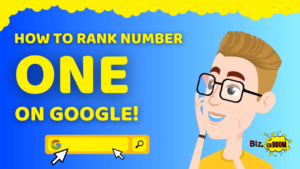
How to Rank Number One on Google
How to Rank NUMBER ONE (#1) on GOOGLE | BizcaBOOM The goal of getting to the top of Google’s number one search results is something
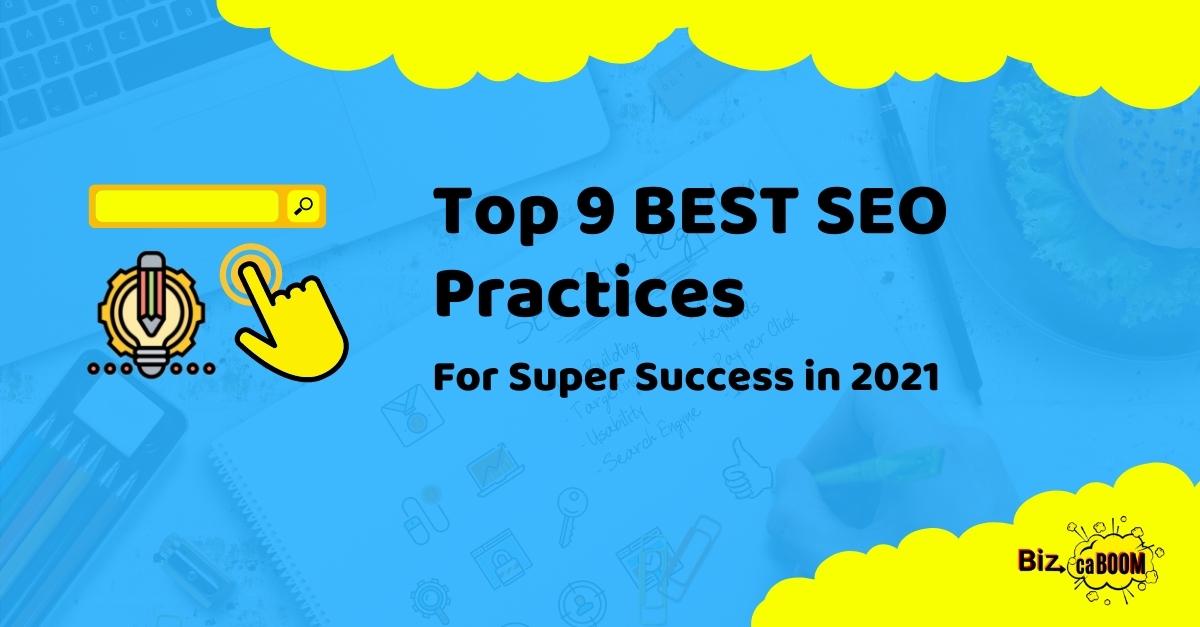
In this article, you’ll learn only the BEST SEO practices for super success in 2021 by a professional SEO company. What’s even more important for having the best SEO in your niche or local area is not only the practices themselves, but the SEO strategy.
With Google’s ever changing algorithm (with over 3200 changes in 2018 alone) and the constant improvement of technology, by learning the best SEO practices in this article, you will be empowered to boost your website’s authority and rankings on Google.
With that said, SEO isn’t a one time thing either, by simply reading these best SEO practices, you’re most likely not going to get anywhere. When going through this list of 9 SEO strategies, picture in your mind how it’s going to work, and think about the process of SEO, not just the results.
Let’s get your website to the first page or top of Google with these 9 BEST SEO practices for 2021:
Google’s algorithm constantly changes on a daily basis. The only way to really keep up with Google and stay on top of your SEO, is to follow Google’s E-A-T principles when developing content:
Expertise: speak like an expert and provide valuable insight within your content. Communicate you message in a way that engages people, know what your audience wants, and simply deliver the best information you can to them. Remember to keep things simple.
Authoritativeness: This is when other relevant sources mention you in the form of a backlink to your website, this tells Google that not only are you the expert in your field, but you have “proof” that what you’re the authority in your niche. Another thing that can help you boost your authoritativeness in Google’s eyes is by having your content shared on social media.
Trustworthiness: Have good reviews on sites like Yelp, Google My Business, Tripadvisor, etc., this shows users and Google that you’re a trust worthy source and should therefore rank higher in the search engines.
The title of your page and the meta description is arguably the most important SEO principle, you can have the best content and most amount of quality backlinks to your website, but if you don’t optimize your title tags and meta description, you’re missing out on your SEO success.
Title tags are the clickable headlines that are in the search results pages and is hugely important for SEO. Title tags basically tell Google and search engines what your page is about. Some good SEO tips for title tags include:
The meta description is just under the title tag is it is a short summary of what your page is about. While the title tag is more of a title, the meta description explain a little more about what the webpage is about.
Here are some guidelines to follow for successful SEO rankings:
This SEO best practice is about making sure that you are catering to your audience. Search intent is the purpose of any search query.
To rank highly in Google’s search engine, a web page needs more than just good content. It also needs to be optimized for certain keywords.
This is where SEO comes in. Check out the result for “how to make Christmas cookies.” The top search result for a “Christmas cookie” does not lead to your eCommerce page, you will find a video or a blog post about these keywords.
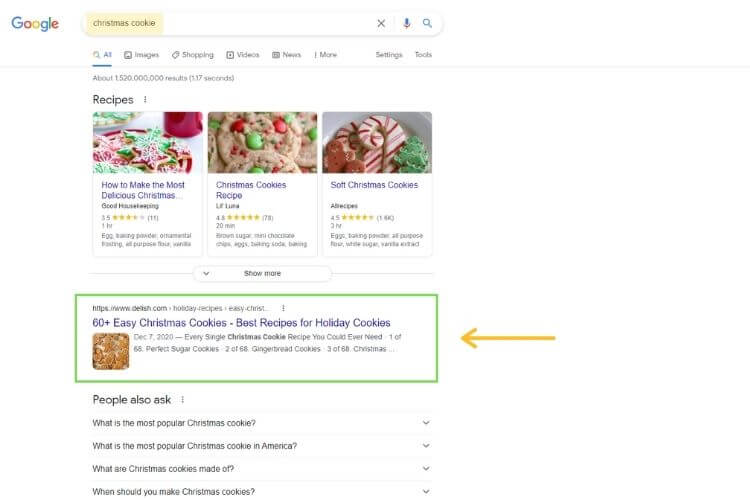
Google has altered its search and ranking algorithms over the years to try to improve user experience. Alternatively, e-commerce pages are prominently displayed for query strings such as “buy Christmas cookies”. When it comes to this case, Google knows people are in a buying mood.
As a result, oatmeal cookie recipes are not included in the top results. Therefore, to rank high on page 1 of Google in 2021, you must create blog post and content that aligns with user intent and understand the concept of search intent.
Search intent can be classified into four types:
Informational: Searches conducted with the intent to provide information fall under the informational category. You can search for something as simple as “will it be sunny today?”. Some are immediate and provide instant results, while others are a lot more complicated and require a more detailed explanation.
Navigational: A navigational search involves a searcher looking for a particular site or a specific app. Navigating by typing “Netflix login,” “Semrush,” or “Amazon” are common examples of navigation.
Commercial: In a commercial search, the user is seeking to purchase a particular product without having made a final decision yet. The queries are all commercial in nature, for example, “best SEO software” or “best vlog cameras”.
Transactional: The intent is to purchase. The buyer has already decided to buy a specific product. Search terms such as “buy Canon M50,” “buy Macbook Pro,” and “buy smartphone online” are just a few examples.
A best practice for SEO is to always create content for your website based on the search intent. The search intent for the keyword “best vlog cameras” is not transactional, but commercial. A user is still undecided about which vlog camera to choose. Optimizing a vlog camera landing page based on those specific keywords makes no sense.
A user searching for “best vlog cameras” is seeking options. This is what Google understands. Not the product or e-commerce pages, but blog posts or videos that rank down the best vlog cameras.
In Short: Make sure your content corresponds to target audiences’ search intent.
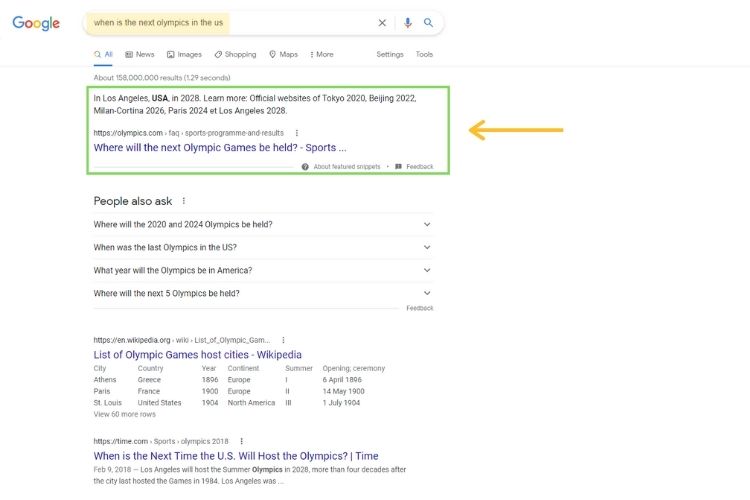
Zero-click searches – the process of finding the answer to your search question without having to click any links – are likely to change the way SEO works in 2021 and beyond.
Approximately 50.3% of Google searches in June 2019 received zero clicks according to SparkToro data. The zero-click index is partly attributed to the SERP features and also to Google Answers, the company’s method of answering common questions like “When is the next Olympics?” directly in the search.
Try to give users what they want as soon as possible.
Find out who already ranks for the keyword you are going to use for a blog post. You should try to get into the head of your target reader and see how they will search for this topic.
You can check the keywords that are bringing visitors to these top results by plugging the URL of these pages into Ahrefs’ Site Explorer and clicking on Organic Keywords. Using these keywords as targets in your post is then possible.
Your content needs to be better than anyone else’s to reach the top of search results. Your domain authority plays a part in this. However, the most important factor is having high-quality, high-value content. In 2021, your content should be the most relevant and actionable it can be.
Whether in text or video format, make sure you’re using engaging material that will help reach more people than ever before! Google’s E-A-T principles (as explained in the beginning of this article): Authoritativeness, and Trustworthiness is something that it has been repeating in its search quality guidelines for years. How long your content should be in 2021 may be a question on your mind.
The best performing content is still long-form. It depends on the circumstances, though. It is unlikely that a local restaurant will benefit from a long blog post; clever local SEO should take priority.
Images have the power to influence visitors to your site with just a single glance, improving their experience. If you have a blog, product pages, and other important pages on your site, you probably spend a lot of time selecting the right images.
Are you equally concerned with optimizing your site’s images? A well-designed image can boost your organic traffic as well as your site’s SEO.
Website speed is an important ranking signal. Images are often the largest contributor to page size. Image uploads for a website will take a long time to load if it has images of high dimensions and large file sizes.
JPEG vs. PNG vs. WebP are different types of formats that need to be optimized otherwise your site visitors will encounter wonky video playback and lagging sites, which is rather frustrating.
JPEG and PNG are the most popular web image formats, however for the sake of saving space on your website, JPEG would be the best file format.
The larger your image file size, the longer it takes the web page to load, which is why compressing images before uploading them is imperative. Several tools are available online that can help you compress your images for free:
TinyPNG: TinyPNG compresses PNG and JPEG by using lossy compression techniques.
ImageOptim: The Mac version of ImageOptim is a free tool you can use to compress your images. Compressing JPEGs with this tool is by far the easiest. PNGs and other formats are not supported, however.
ShortPixel: With ShortPixel, you can compress your images if you use WordPress to run your site. It is free to compress 100 images per month using ShortPixel.
It is still necessary to add alt text to images despite improvements in Google’s ability to understand images. Images with alt text help make your site more accessible to people with disabilities.
Google’s guidelines for writing alt text are as follows: You should create alt text that is meaningful, information-rich, and appropriately uses keywords within the context of the page.
Using keywords in your alt attribute (keyword stuffing) can result in a negative user experience and may make your site appear spammy. You should not stuff your target keywords into your alt text when describing images.

Rankings are determined by how well your website is optimized for mobile devices. By not making sure your mobile content looks great, you’re taking a step forward and a step backward.
Check how your website looks on popular devices with mobiReady to see how it looks on different screen sizes. In SEO best practices, always make sure your website is mobile-optimized for all page types and know how to upload text, images, and embedded media for the cleanest results on all devices.
One of the most valuable assets your website and business is its brand, and SEO is closely related to it.
Although you should optimize for keywords are popular, you need to understand that consumers want to spend time on websites that are engaging and provide value. Over and above digital marketing strategies, the best brands have always relied upon brand awareness and preference as their top tactic. 2021 will see marketing changing from merely influencing visibility to influencing brand preference.
The more traffic that comes from branded searches for your business name, the better off you’ll be.
SEO can be a tricky game to win, if you don’t know what you’re doing, but hopefully after reading these 9 best SEO practices for 2021, you can now rank for just about anything you want!

If you ever need a helping hand in getting your company or home service business at the top of Google, look no further and book a call with BizcaBOOM, a Houston area SEO Company, so that you can get more calls coming in.
Now that you have learned our 9 BEST SEO Practices for 2021, why not share this post with your friends?
Spread the word out so we can continue to give you valuable SEO content!
Recent Articles:

How to Rank NUMBER ONE (#1) on GOOGLE | BizcaBOOM The goal of getting to the top of Google’s number one search results is something

How to Choose the Right Keywords for SEO Purposes | BizcaBOOM One of the most critical aspects of good search engine optimization is choosing the
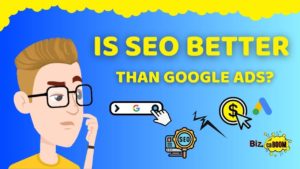
Is SEO Better than Google Ads? SEO vs Google Ads Many businesses use marketing techniques such as search engine optimization (SEO) and Google Ads to

How to Rank NUMBER ONE (#1) on GOOGLE | BizcaBOOM The goal of getting to the top of Google’s number one search results is something

How to Choose the Right Keywords for SEO Purposes | BizcaBOOM One of the most critical aspects of good search engine optimization is choosing the

Is SEO Better than Google Ads? SEO vs Google Ads Many businesses use marketing techniques such as search engine optimization (SEO) and Google Ads to
Tell us about your company: